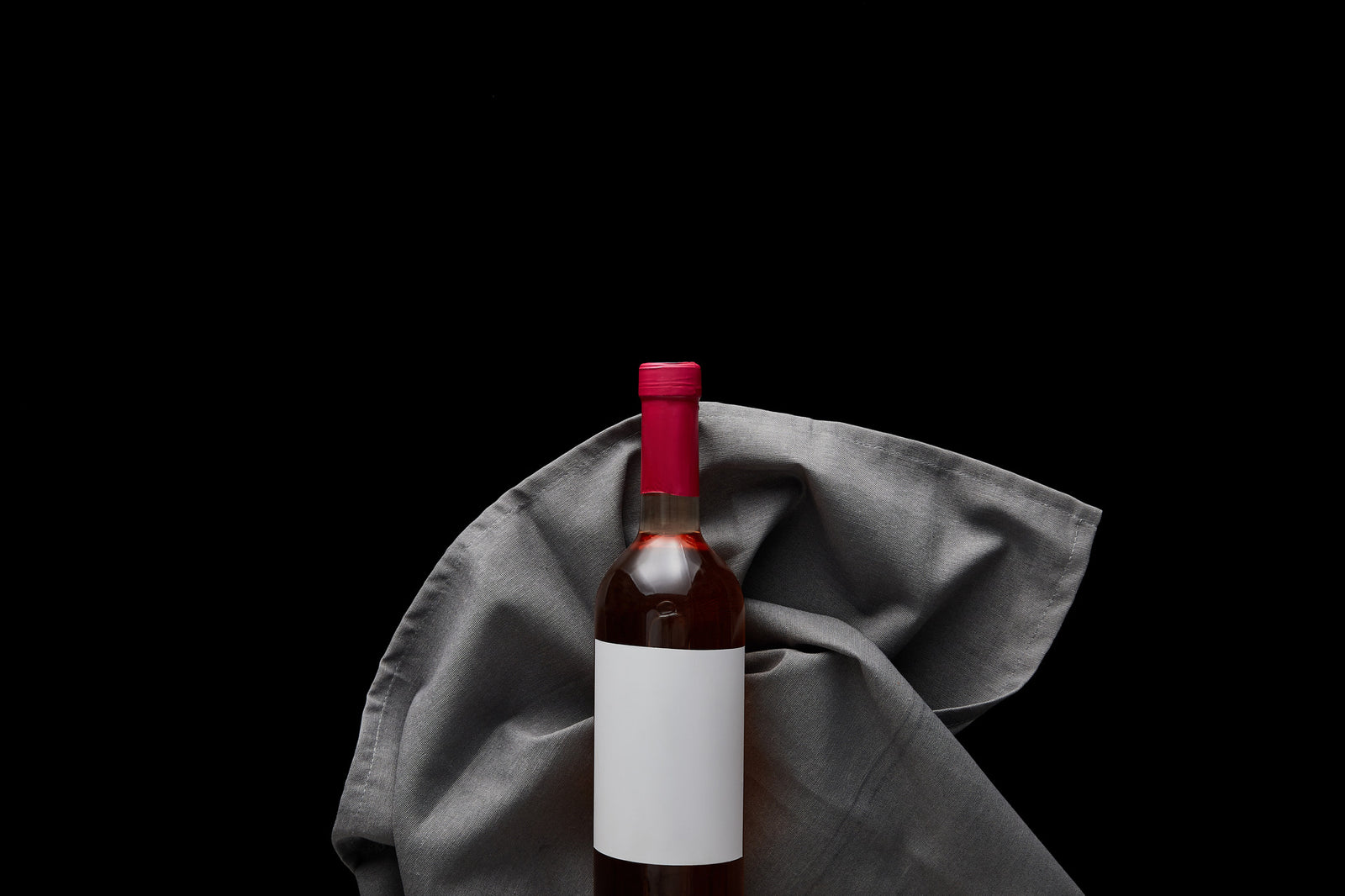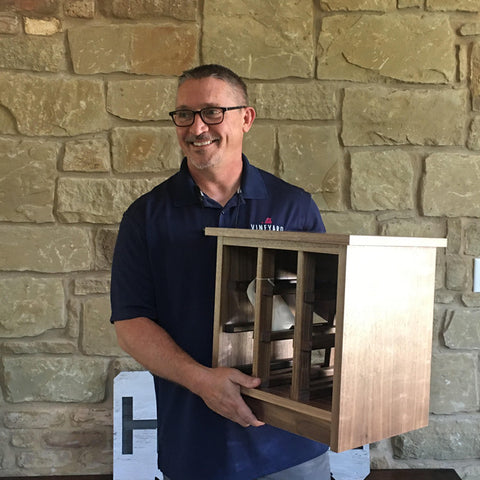While temperature often steals the spotlight in wine storage, another unsung hero is playing a crucial role: humidity. It affects how the cork ages, controls cellar evaporation and influences the maturation of wine. Preserve your wine to perfection by understanding the crucial role of humidity in wine storage.
Understanding the Basics of Wine Storage
To properly store your wine, there are several vital elements to consider. Let's take a closer look at these components.
- Temperature
- Light
- Vibration
- Humidity
Temperature
Maintaining the correct temperature is essential to prevent spoilage and ensure proper aging. The ideal temperature for preserving wine is generally between 45°F to 65°F (7°C to 18°C). If the temperature is too high, it can cause the wine to age more quickly, ruin its rich flavor and aroma, and even damage the wine's label.
Light
Excessive exposure to light, especially UV rays, can lead to premature aging of your wine. That's why storing your bottles in a dark environment or using tinted glass or wine cellars with UV protection is essential.
Vibration
Vibrations can disturb the delicate sediments in your wine, affecting its flavor and aging process. Avoid storing your bottles in areas prone to excessive movement, or invest in vibration-dampening solutions.
Humidity
The condensation in the air keeps the corks moist and prevents them from drying out. This is vital for creating a tight seal and avoiding unwanted oxygen contact. Maintaining the best humidity for the wine cellar prevents the corks from drying out, preserves the seal, and thwarts oxidation.
To summarize, home wine cellar temperature and humidity levels should be maintained, and wine bottles should be kept away from excess vibration and light to preserve the wine's quality and taste.
Exploring the Impact of Humidity on Wine
Humidity plays a significant role in preserving your wine investment. Let's understand its impact on your favorite bottles.
- Preserve Cork Integrity. Humidity prevents corks from drying out, maintaining their elasticity and preventing air from seeping into the bottle. This crucial seal protects the wine from oxidation, preserving its flavors and aromas.
- Controls Evaporation. Adequate humidity levels help regulate the evaporation of wine through the cork. The wine retains its intended concentration, balance, and aging by minimizing excessive evaporation.
- Prevents Label Damage. Consistent humidity prevents labels from peeling, fading, or becoming damaged due to moisture fluctuations. This preservation of labels is not just aesthetically pleasing but also crucial for maintaining the wine's provenance and value.
- Prevents Contamination. Optimal humidity levels safeguard against mold and mildew growth on corks and labels, preventing any potential contamination that could compromise the wine's quality.
- Ensures Long-Term Aging. Stable humidity preserves the wine's structure, enabling it to mature and evolve as intended by the winemaker.
- Protecting Investment Value. For collectors and investors, humidity control is essential for preserving the value of rare or high-end wines.
Optimal Humidity Levels for Ideal Wine Storage
How do you store wine to ensure proper preservation? Here’s the recommended humidity range, the risks associated with excessive humidity, and the consequences of low humidity on wine preservation.
Recommended Humidity Range
The recommended humidity level for wine storage typically falls between 50% and 70%. This wine cellar humidity range provides the perfect balance for keeping the corks moist and maintaining the quality of the wine.
Risks of Excessive Humidity
While humidity is vital for wine storage, excessive moisture can pose risks. High humidity levels above 70% can lead to mold growth on labels and potential damage to the wine cellar infrastructure.
Consequences of Low Humidity
Insufficient moisture can cause the corks to dry out on the other end of the spectrum, leading to oxygen exposure and accelerated oxidation. This can result in the wine losing its vibrant flavors and aromas, ultimately compromising its quality.
Practical Tips for Maintaining Humidity in Wine Storage
Here are some practices to help you monitor and maintain humidity levels effectively:
- Invest in a Hygrometer. Use a reliable hygrometer to monitor humidity levels accurately. This device helps you stay within the desired range and adjust when necessary.
- Climate Control Systems. Install climate control systems like wine cellar humidifiers or dehumidifiers to regulate humidity levels. These systems are beneficial in areas with extreme weather conditions.
- Maintain Consistency. Aim for a stable wine cellar humidity level. Sudden changes in humidity can negatively impact wine quality by affecting corks, labels, and the wine itself.
- Proper Ventilation. Ensure proper ventilation in the storage area to prevent stagnant air, which can contribute to mold or mildew growth.
- Use Sealable Storage Units. Opt for sealable wine storage units or glass-enclosed wine cellars to minimize exposure to external fluctuations.
- Regular Monitoring and Maintenance. Inspect for leaks, mold, or any changes in humidity levels that could affect wine quality.
- Proper Wine Cellar Door and Flooring. Invest in a well-sealed wine cellar door to keep the cool air in. Additionally, consider flooring materials that resist moisture to maintain the correct humidity level in the wine cellar.
- Invest in Wine Cellar Cooling Units. Climate control units explicitly designed for cellar humidity and temperature regulation ensure ideal wine storage conditions for long-term preservation.
- Use Wine Fridges or Cabinets with Climate Control. Opt for wine fridges or cabinets equipped with humidity control features. This equipment helps maintain stable humidity levels, creating the best environment for wine storage, especially for smaller collections or immediate consumption.
Takeaway

It is impossible to overlook the vital role of humidity in wine storage. It helps maintain proper sealing and prevent oxidation, which can change the wine's chemical structure. This ensures the wine maintains its quality so you can enjoy your investment over time. Implement the practical tips in this article, especially following the best temperature and humidity for the wine cellar to create an environment that prolongs the shelf life of your wine.
How do you keep your wine fresh for a long time? Share your tips with us in the comments!
Contact our customer support team if you have any inquiries about our products or need assistance planning your wine cellar.


